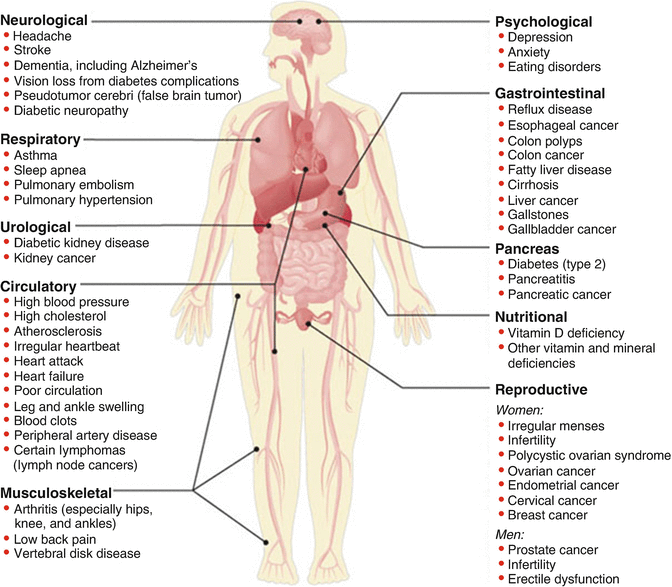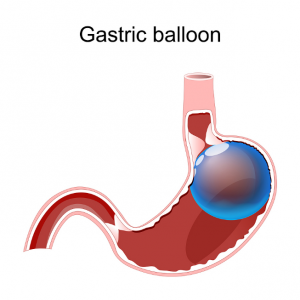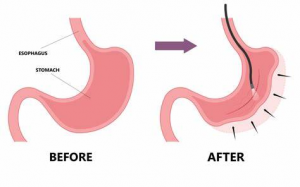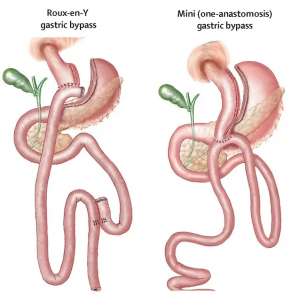Obesity & Weight Loss Surgery
Effective Obesity Treatment Options: Lifestyle, Medications, and Bariatric Surgery in Singapore
Understanding Obesity, Weight Loss, Bariatric and Metabolic Surgery
Obesity cannot be brushed aside as a cosmetic problem. It is, in fact, a medical condition with serious consequences to one’s health. A chronic disease involving accumulation of excess body fat, obesity increases the risk of many medical conditions such as diabetes mellitus and high blood pressure (hypertension), and shortens your life span.
Fortunately, obesity can be treated by a multidisciplinary team lead by our surgeon, Dr Kim Guowei. By addressing key areas and causes, we work closely with a team that includes endocrinologists, dieticians, physiotherapists. Our comprehensive approach can give you the best chance of successful and sustainable weight loss.
In addressing obesity and its associated health risks, a spectrum of treatment options exists, ranging from lifestyle modifications and medications to surgical interventions. This article aims to provide a thorough exploration of these options, including their benefits, risks, and considerations for patients.
What is Obesity?
The World Health Organisation (WHO) defines obesity based on Body Mass Index (BMI). The definition of obesity among Asians and Caucasians are BMI ≥ 27.5 and BMI ≥ 30 respectively.
Class / Severity of Obesity
| BMI | Category | Health Risk | Suggested Treatment |
|---|---|---|---|
| 23 to 27.4 | Overweight | Moderate | Diet and Exercise |
| 27.5 to 32.4 | Obese | High | Diet and Exercise, consider endoscopic & surgical procedures |
| 32.5 to 37.4 | Severely Obese | Very High | Consider Obesity Surgery |
| 37.5 and above | Morbidly Obese | Very High | Obesity Surgey recommended |
*BMI values for Asian population according to MOH guideline NIH Concensus Conference.
check your body mass index (BMI)


Obesity Related Co-morbidities
Obesity is closely associated with many serious health conditions such as:
- Type 2 diabetes
- Hypertension (high blood pressure)
- Sleep apnea
- High cholesterol
- Cardiovascular disease
- Joint problems (osteoarthritis)
- Cancer (such as breast and colon)
A comprehensive list of obesity related conditions can be seen in figure 1.

Treatment Options
Diet: A balanced, reduced-calorie diet tailored to individual needs can promote weight loss. Diets such as the Mediterranean diet or low-carbohydrate diets have shown effectiveness.
Exercise: Regular physical activity, including aerobic and resistance training, not only aids in weight loss but also improves overall health and well-being.
Behavioral Therapy: Counseling and behavioral modification techniques help address emotional eating, stress management, and lifestyle changes crucial for long-term weight management.
Medications (pharmacotherapy) is a good adjunct for weight loss. It can be combined with diet and exercise, or with endoscopic or surgical interventions, to maximise weight loss and co-morbidity improvement. However, medications come with side effects and may have to be taken long term, with a real risk of weight regain/rebound upon stopping medications.
Some medications that may be used for weight loss are:
Orlistat: Reduces fat absorption in the intestine, leading to weight loss. Side effects may include gastrointestinal discomfort.
Phentermine: Suppresses appetite and increases feelings of fullness. Side effects may include increased heart rate, insomnia, and cognitive difficulties.
SGLT-2 Inhibitors (E.g., Canagliflozin): Diabetes medications that can lead to modest weight loss through increased urinary glucose excretion. Side effects may include increased risk of urinary tract infections and diabetic ketoacidosis.
Liraglutide, Semaglutide, and other GLP1-Receptor Agonists: Used for patients with diabetes and/or obesity, these drugs help with weight loss by slowing digestion and reducing appetite. Side effects may include nausea, vomiting, and pancreatitis. Dosing may be via a simple injection (once daily or weekly) or in tablet form.
Endoscopic Procedures
Intra-Gastric Balloons: Inflatable devices placed in the stomach to induce a feeling of fullness. Placement may be done with endoscopic guidance or by simply swallowing a balloon pill (inflating it under X-ray guidance once it enters the stomach)! Balloons are a non-surgical and reversible, but may cause discomfort and require removal after several months.

Endoscopic Sleeve Gastroplasty (ESG): Suturing the stomach from the inside to reduce its capacity. Less invasive than traditional surgery with shorter recovery time but may have lower weight loss outcomes.

Surgical Procedures
Individuals with a BMI greater than 32.5 kg/m2 are advised to consider surgery for obesity (also referred as “Bariatric Surgery”) when all other treatment options have been unsuccessful. In some patients with poorly controlled obesity related conditions (like Diabetes Mellitus), surgery can be considered for BMI greater than 27.5 kg/m2. Surgery enables you to successfully lose weight and treat obesity-related diseases. It also helps to sustain your weight loss for years, thus improving overall quality of life.
Surgery has proven to be an effective treatment for patients who are morbidly or severely obese for the last 4 decades. It is in fact backed up by a recent study of more than 22,000 patients that patients could expect to lose more than 60% of their excess weight after bariatric surgery. Another study showed that following surgery, up to 80% of patients experienced complete resolution or improvement of their co-morbid conditions, such as diabetes, hypertension and sleep apnoea. A study from Singapore in 2021 showed that obese patients with diabetes who underwent bariatric surgery lived 9.3 years longer than patients who were managed without surgery. For obese patients without diabetes, those that underwent bariatric surgery lived 5.1 years longer.
In the last decade, with “keyhole” or minimally invasive surgery, bariatric surgery has become much less invasive than the conventional surgery. Bariatric Surgery usually involves a modification of the digestive tract with the aim of reducing the size of gastric reservoir with or without reducing the ability of the gut to absorb food. Further advances in medical technology have also added the option of robotic surgery, to perform more precise and delicate surgery for patients.
Prior to surgery, each patient will be assessed by our multidisciplinary team. Here, it is also emphasised that lifestyle changes such as healthy eating and regular exercise are essential to sustain weight loss after surgery.
Sleeve Gastrectomy: Removal of a large portion of the stomach to create a smaller, sleeve-shaped stomach. Offers significant weight loss and improvement in co-morbidities but is irreversible and carries risks like leaks and vitamin deficiencies.

Roux-en-Y Gastric Bypass (RYGB): Creation of a small stomach pouch and rerouting of the digestive tract. Rapid weight loss and effective resolution of co-morbidities but can lead to long-term nutritional deficiencies and complications like dumping syndrome.
One Anastomosis Gastric Bypass (OAGB): Similar to RYGB but with a single connection (anastomosis) to the small intestine. Effective weight loss with potentially fewer complications than RYGB but carries risks like bile reflux and nutritional deficiencies.

Conclusion
Treatment for severe obesity should be approached with careful consideration of individual health conditions, BMI, and personal preferences. Lifestyle interventions, medications, and surgical options each offer distinct benefits and risks. Consulting with a multidisciplinary team including physicians, dietitians, and psychologists is crucial to determine the most suitable approach.
While bariatric and metabolic surgeries can provide profound benefits, they require lifelong commitment to dietary and lifestyle changes. Similarly, medications and lifestyle interventions can be effective when combined with ongoing support and monitoring.
Patients should prioritize informed decision-making and comprehensive evaluation of all treatment options to achieve sustainable weight loss and improve overall health.
Our Aim
Our aim is for our patients to achieve the health benefits that occur with weight loss in obesity, as well as to both look and feel good about themselves after treatment. We build a long-term relationship with our patients to make sure that they have sustainable results after treatment and to ensure that they return to the community with continuity of care.
At Crest Surgical Practice, apart from medication and lifestyle adjustments, our bariatric surgeon, Dr Kim Guowei, is experienced in minimally invasive interventions for obesity and offer a wide range of options for bariatric treatment (both endoscopic and surgery), that will be tailored to every individual patient.
